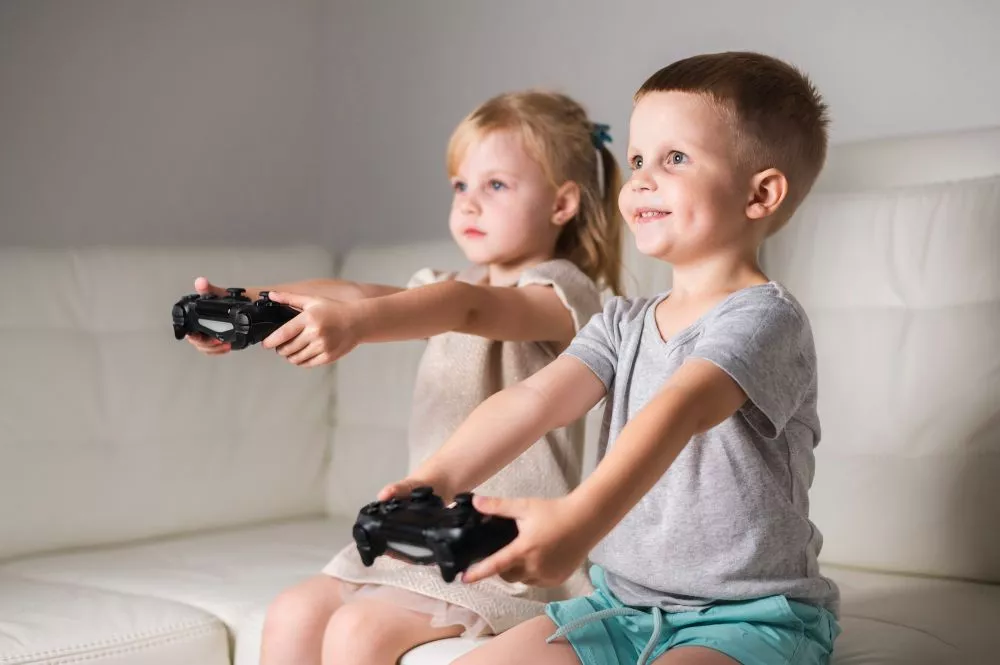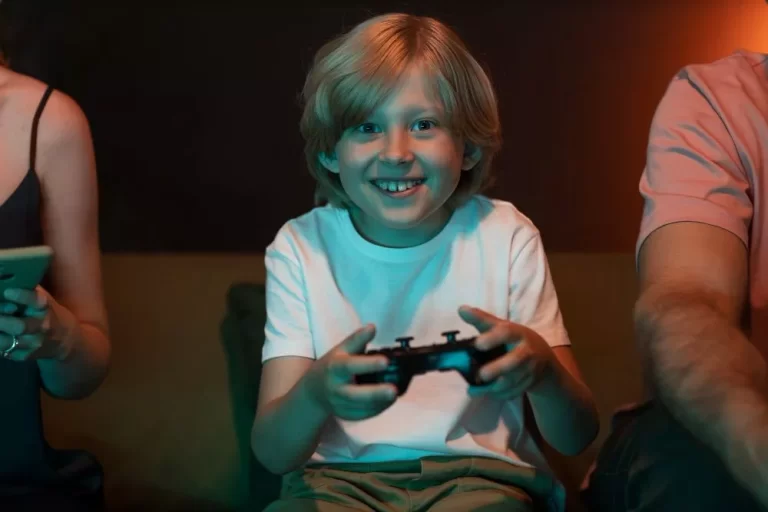As technology advances, the gaming industry continues to grow bigger and bigger — bringing with it a number of questions and debates, particularly around the issue of whether playing video games increases violence in kids. With the internet providing access to a seemingly endless supply of different titles, from highly sophisticated first-person shooter games to classic puzzlers, our children have more choices than ever before when it comes to choosing what they play.
But as parents worry about how their children are spending their time on these devices and which types of content might be inappropriate for their age group, an overarching concern remains — do video games cause violent behavior among young people? In this blog post, Define what “video games” are and their growth in recent years

Video games are a form of interactive entertainment that allows players to engage in virtual experiences. From classic arcade games to the latest console releases, video games have come a long way since their inception. In recent years, their growth has been nothing short of phenomenal. With advancements in technology and the rise of accessible internet connections, video games are more popular than ever.
These days, players can choose from an endless array of genres, from sports games to adventure titles, all with impressive graphics and intricate storylines. Video games have become a powerful medium for storytelling and self-expression, attracting millions of players worldwide. As the industry continues to evolve, video games are poised to remain a dominant force in entertainment for years to come.
Video Games and Aggression in Kids
Video games have become an incredibly popular pastime for kids all over the world. However, concerns have been raised regarding the potential link between playing video games and the increased aggression witnessed in some children. In order to shed light on this topic, researchers have conducted studies on the subject.
These studies have revealed some interesting findings that could impact the way parents view video games. While some studies suggest that there may be a correlation between playing violent games and increased aggression, others have challenged this theory. Nevertheless, the existing research certainly warrants further investigation. Ultimately, parents must consider a range of factors before allowing their children to play video games.
Mitigating Video Game Harms for Parents
As video games have become more popular among children and teens, concerns have arisen about their effects on mental health and behavior. But as a parent, you have the power to mitigate these potential harms. One key strategy is to establish clear rules around gameplay, including setting limits on screen time and prohibiting games with excessive violence or other problematic content.
Another important step is to monitor your child’s gaming habits and take note of any changes in mood or behavior. Finally, it’s crucial to engage in open and ongoing conversations with your child about the impact of video games on their well-being. By taking these proactive steps, you can help ensure that your child enjoys the benefits of gaming while staying safe and healthy.
Consider the media influence of popular video games
Video games have become a popular pastime among children worldwide. While this form of entertainment can be engaging and fun, there are concerns about the potential negative impact on children’s mental health. Some argue that violent video games may contribute to aggressive or anti-social behavior, while others suggest that excessive screen time can lead to addiction, anxiety, and depression.
On the other hand, supporters of video games argue that many games can be educational, improve cognitive skills and problem-solving abilities. Despite the conflicting opinions, it is undeniable that video games have a significant influence on children and, therefore, it is crucial to understand their effects.
Regulations on Violent Video Game Exposure
Video games have been a subject of controversy over the years due to the violent content that some of them portray. While it is still debated whether or not playing violent video games causes real-world violence, there is growing concern that prolonged exposure to such content could have negative effects on mental health.
As a result, there have been calls for regulations to limit the availability of violent video games, similar to those already in place for movies and television. These regulations could potentially include age restrictions, warning labels, and limitations on the amount and type of violence allowed in gameplay. In order to provide a safer and more responsible gaming experience, industry leaders and lawmakers must work together to find a solution that benefits both gamers and society as a whole.

Education and Parental Guidance in Child Media Habits
In today’s digital age, children have access to a wide variety of media content at their fingertips. This has resulted in a significant impact on their behavior and overall personality. Hence, it is important for parents to provide adequate guidance and monitoring when it comes to media consumption.
Education plays a vital role in this process, helping children understand the importance of ethical media behavior, credibility of sources, and responsible usage. By teaching children about media literacy, parents can help them make informed decisions while consuming any sort of media. With the right guidance and education, children can learn to use media in a positive and productive way, ultimately leading to well-rounded personality development.
Last Word
In conclusion, it is clear that playing video games has the potential to have either positive or negative effects on a person’s mental health. The results of existing research suggest that playing violent video games can lead to increased aggression, particularly in younger players, and this is especially troubling for parents who are looking to protect their children from any potential harms.
It is clear from our examination of the media influence of popular video games that regulation and guidance are needed to discourage violent content and improper gaming practices. Ultimately, dialogue between parents and their children on safe video gaming habits can help prevent negative outcomes while also having a beneficial impact on children’s overall mental well-being.
Additionally, education about the risks associated with online interactions in multiplayer games is just as important for boosting parental knowledge and improving gaming safety. With proactive action and adequate parental guidance, we can work together to ensure a safe environment for gamers of all ages.
Frequently Asked Questions
The link between violent video games and aggressive behavior in children and adolescents has been a subject of research for many years. While some studies suggest a correlation between exposure to violent video games and short-term increases in aggression, the overall evidence is inconclusive and often contradictory. Other factors, such as family environment, social influences, and individual personality traits, also play significant roles in shaping behavior.
Parents should be mindful of the content their children are exposed to in video games. It’s essential to consider age-appropriate ratings and content descriptors provided by the Entertainment Software Rating Board (ESRB) or other relevant organizations.
Yes, video games can have positive effects on kids. They can enhance cognitive skills, problem-solving abilities, hand-eye coordination, and creativity. Some video games are designed to be educational and can support learning in various subjects.






